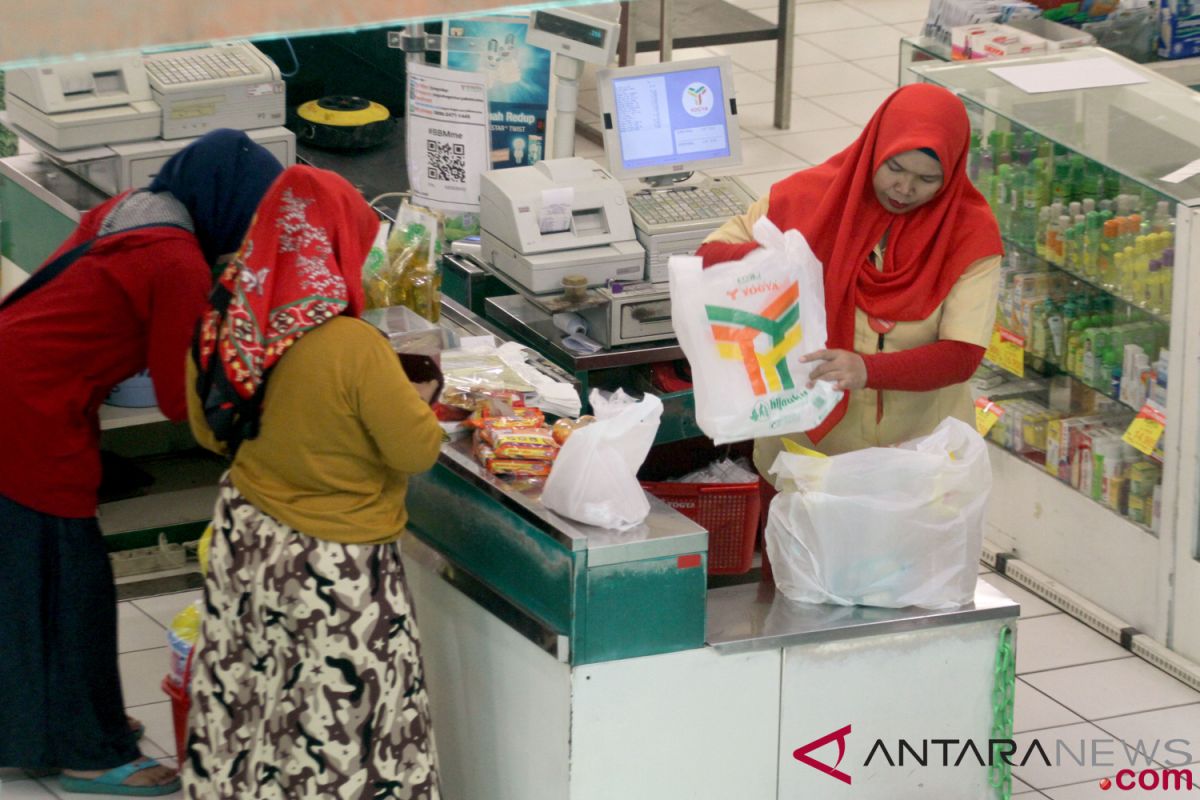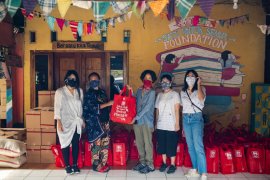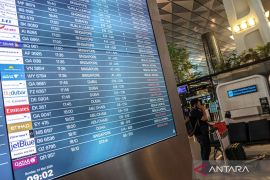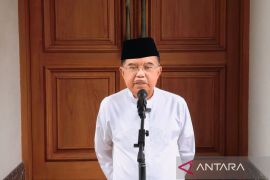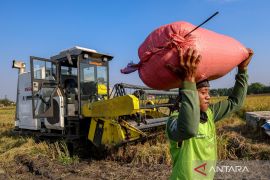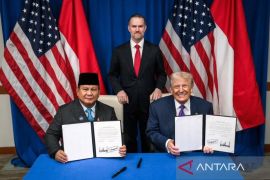Jakarta, (ANTARA News) - Plastic waste is difficult to decompose and poses a serious threat to the environment.
Therefore, the government hopes to find solutions to the problem of plastic waste, especially plastic bags that are widely used in shopping centers in Indonesia.
Now many cities in Indonesia are starting to implement regulations that prohibit or limit the use of plastic bags by the shopping centers.
However, the ban on the use of plastic bags will have a negative impact on the plastic industry business. Therefore, the Indonesian Plastic Industry Association (Inaplas) has asked regional governments to review the regulation.
Deputy Chairman of Inaplas, Suhat Miyarso, rejected the ban on plastic shopping bags introduced by several regional heads and requested for a review of the policy.
"Inaplas urged that the policy be replaced by efforts to improve the performance of waste management with all stakeholders," Miyarso stated during a press conference in Jakarta on Tuesday (Dec 11).
Miyarso added that Inaplas appreciated the government`s efforts to tackle the waste problem, as well as its concern about the behavior of the plastic users who were ignorant of the environment.
"We all understand that the problem of plastic bags is not due to the plastic material but due to poor waste management system," Miyarso noted.
According to him, used plastic still has economic value as it can be recycled, reused, or reprocessed, so that it creates new businesses for the community.
For this reason, Miyarso remarked that the ban on plastic shopping bags is not the solution to handling pollution due to waste on land, river, and sea.
"Pollution will still occur if waste management is not improved," Miyarso explained. In addition, the ban has the potential to stop the investment plan in the domestic plastic sector, where Indonesia still basically needs plastic.
"If there is no production in the country, then imports are permitted. Thus, the desired goal will not be achieved," he added.
Miyarso elaborated that the Small and Medium Industries (IKM) are predicted to be directly affected by the ban.
Now, the local governments of several regions have begun to implement or popularize their plans to implement a ban on the use of plastic bags. These regions included Bogor and Bekasi of West Java; the tourist resort city of Denpasar (Bali); and Batam City of Riau Islands Province.
The City of Bogor, West Java, officially banned the use of plastic bags in modern retail and shopping centers starting Dec 1, 2018.
"Today, Botak (Bogor without a Plastic Bag) starts in Bogor City," Bogor Mayor Bima Arya remarked at the launch of a Day without Plastic Bags in Bogor City on Saturday (Dec 1).
The policy to ban the use of plastic bags in modern retailers and shopping centers is regulated in the City Regulation No. 61 of 2018 concerning Reducing the Use of Plastic Bags.
The program has been popularized over the past several months, and is now being implemented in modern retailers and shopping centers.
"I am happy to see the community gladly welcome this, and the shops are ready," he noted.
He stated that Botak days or days without plastic bags in Bogor City were welcomed by the community and retailers. Several shops that he visited were ready to apply the rules by providing several environmentally friendly bags.
The bag, he said, is in a form of environmentally friendly bags made from cassava fiber. There are also shopping bags made from recycled materials. This eco-friendly bag can be obtained by residents in shopping supermarkets with prices ranging from Rp10 thousand to Rp12 thousand.
In the meantime, the City of Bekasi Government, the neighboring city of Bogor, will end the campaign on the ban on the use of plastic bag packaging by retail entrepreneurs in its territory on Jan 1, 2019.
"As of January 2019, we will have implemented a ban on the use of plastic packaging in retail stores. We have intensified the campaign since the beginning of 2018," Jumhana Luthfi, head of the Bekasi City Environmental Office, noted on Tuesday (Dec 12).
The City Government of Bekasi had finalized a strategy so that the rules would be accepted by the public and business owners. "The Mayor`s Regulation regarding the ban on the use of plastic bags as packaging has already existed in 2016 and 2018," he revealed.
The same thing will also be done by the Denpasar City Government, Bali, starting Jan 1, 2019. Denpasar will impose a ban on the use of plastic bags in modern shops and shopping centers starting Jan 1, 2019, as an effort to reduce plastic waste in urban areas.
"The move is a follow-up to the enforcement of Denpasar Mayor Regulation Number 36 Year 2018 concerning Reducing the Use of Plastic Bags," Denpasar City Government Public Relations Head I Wayan Hendaryana revealed when contacted by Antara Bali in Denpasar on Tuesday (Dec 11).
He added that the Denpasar City Government had promoted the regulation of the mayor to the public, as well as shopping centers.
Chairman of the Indonesian Shopping Center Management Association Board (APPBI) for Bali Province, Gita Sunarwulan, voiced support for the movement to reduce the use of plastic bags at shopping centers, including major modern ones.
"In principle, we support the movement and have called on shopping centers, especially those in Bali, to reduce the use of plastic bags," Sunarwulan noted on the sidelines of Bali Ultimage Great Sale here on Thursday.
In the meantime, the regional government of Batam City, Riau Islands Province, is now drafting a regulation on the restriction of plastic use in various official ceremonies.
"We are programming a regulation at the regional level. It is not impossible for us to introduce a regulation at the municipal level to restrict the use of plastic," Deputy Mayor of Batam City, Amsakar Achmad pointed out here on Tuesday.
The (regional) government is still drafting plans to replace the use of plastics with other materials during official and community events. "We want a comfortable one. Comfortable bags are those made of pandanus leaves, for example," he noted.
According to Maritime Affairs and Fisheries Minister Susi Pudjiastuti, Indonesia is rated as the second biggest plastic contributor to the sea after China. "We have thrown almost 160 million tons of plastic waste into the sea. One day, the Indonesian sea will contain more plastic than fish," she revealed recently.
She explained that the plastic waste issue can become a time bomb for the Indonesian people if the waste disposed in the gullies and waters are not immediately handled.
Editing by Yosep Haryadi
Reporter: Antara
Editor: Suharto
Copyright © ANTARA 2018
